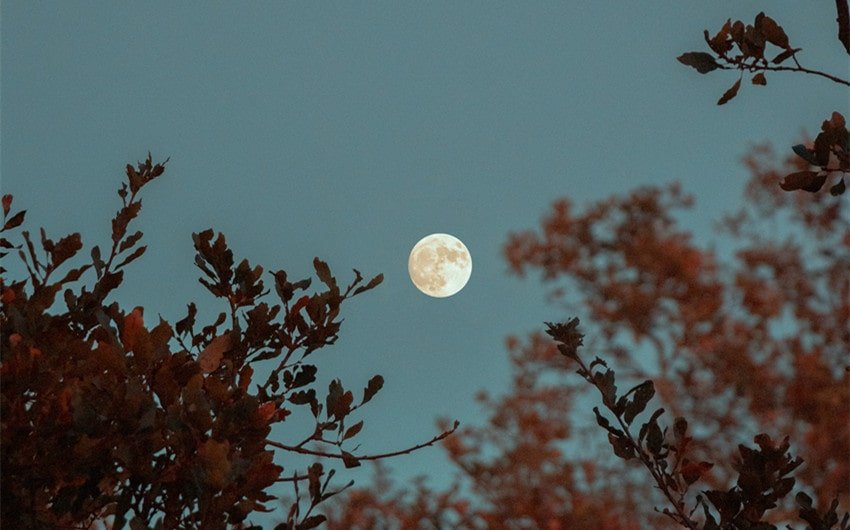Japanese culture is good with symbolism and meaning, commonly when it comes to names. Each name is carefully chosen to reflect aspects of identity, personality, and heritage. Among the myriad of themes that inspire Japanese names, the moon holds a particularly significant place. In this article, we’ll delve into the enchanting world of Japanese names meaning moon, exploring their cultural context, historical significance, and modern-day relevance.
Importance of Names in Japanese Culture
Names are not mere labels in Japanese culture; they carry profound significance. They are believed to shape one’s destiny and identity, influencing personal traits and life paths. Therefore, the process of naming is approached with great care and consideration.
Cultural Connection with the Moon
The moon has long been revered in Japanese culture for its beauty, mystique, and symbolic meaning. It is associated with various elements such as purity, tranquility, and enlightenment. Throughout history, the moon has inspired poetry, art, and spiritual practices in Japan.
Common Japanese Names with Moon Meanings
Several Japanese names are directly inspired by the moon. “Hikaru,” meaning “to shine” or “light,” reflects the luminous quality of the moon. “Tsukiko,” derived from “tsuki” (moon), embodies the celestial charm of the lunar body. “Mizuki,” combining “mizu” (water) and “ki” (tree), evokes imagery of moonlight reflecting on water. Similarly, “Akari,” meaning “light” or “brightness,” alludes to the radiance of the moon.
Historical Context of Moon Names
The roots of moon-inspired names can traced back to traditional Japanese beliefs and folklore. The moon is often associated with Shinto and Buddhist traditions, symbolizing spiritual enlightenment and cyclical renewal. Ancient myths and legends depict the moon as a celestial deity, influencing cultural practices and naming customs.
Modern Usage and Trends
In contemporary Japan, names with moon meanings continue to be popular choices for newborns. Parents often select these names for their poetic resonance and timeless appeal. The trend reflects a deep-seated cultural reverence for nature and celestial phenomena.
Celestial Inspiration
The allure of the moon lies in its connection to the natural world and the cosmos. Japanese names inspired by the moon capture this mystical essence, fostering a sense of harmony with the universe. They serve as reminders of humanity’s place within the grand tapestry of existence.
Impact of Moon Names on Individuals
For individuals bearing moon-inspired names, their significance goes beyond mere nomenclature. These names shape their sense of self and cultural identity, instilling a sense of pride and connection to their heritage. They carry on a tradition that spans generations, linking past, present, and future.
Celebrities and Famous Figures with Moon-Inspired Names
Throughout history, numerous celebrities and famous figures in Japan and beyond have borne names with moon meanings. From renowned authors to acclaimed artists, these individuals embody the timeless allure of the moon in their work and achievements.
Naming Practices and Traditions
Japanese naming conventions vary depending on factors such as gender, family lineage, and social status. However, the reverence for meaningful names remains constant. Parents often consult astrological charts, family histories, and cultural references when choosing names for their children.
Gender Neutrality in Moon Names
One notable aspect of moon-inspired names is their gender-neutral quality. Unlike some names that are explicitly masculine or feminine, moon names possess a universal appeal that transcends gender boundaries. This inclusivity reflects the egalitarian ethos of Japanese society.
Moon Names in Popular Culture
The influence of moon names extends beyond personal identity into popular culture. They feature prominently in literature, film, and music, serving as symbols of romance, mystery, and transcendence. From classic novels to contemporary songs, the moon continues to inspire creative expression.
Evolution of Moon Names Over Time
While the essence of moon names remains timeless, their popularity and usage have evolved over time. Changing social dynamics, cultural trends, and linguistic shifts have influenced the adoption and adaptation of moon-inspired names. Yet, their intrinsic symbolism endures, connecting generations across epochs.
Further Exploration of Moon Names
Literary Inspirations
In Japanese literature, the moon frequently serves as a motif, symbolizing themes of beauty, transience, and introspection. Renowned authors like Natsume Soseki and Yasunari Kawabata often weave moon imagery into their works, infusing them with a sense of ethereal wonder.
Artistic Expressions
The moon’s captivating allure has also inspired generations of artists in Japan. From traditional woodblock prints to contemporary manga illustrations, depictions of the moon adorn countless artworks, capturing its ever-changing phases and luminous glow.
Musical Harmonies
In the realm of music, the moon serves as a muse for composers and lyricists alike. From classical compositions to modern J-pop ballads, references to the moon abound in Japanese music, evoking emotions of nostalgia, romance, and longing.
Cinematic Splendor
Japanese cinema is no stranger to the enchanting allure of the moon. Filmmakers often use moonlit scenes to create mood and atmosphere, infusing their narratives with a sense of magic and mystery. From samurai epics to contemporary dramas, the moon casts its silver glow over cinematic masterpieces.
Lunar Festivities
Throughout Japan, various festivals celebrate the moon’s beauty and significance. One such festival is Tsukimi, or the Moon Viewing Festival, held in autumn to admire the full moon and offer gratitude for the harvest. It’s a time for family gatherings, traditional foods, and poetic contemplation under the moonlit sky.
Future Trends
As society evolves and cultural dynamics shift, the allure of moon-inspired names is likely to endure. In an increasingly interconnected world, people continue to seek connections to nature and timeless symbols that transcend borders and boundaries. Moon names offer a timeless link to the celestial realm, inspiring wonder and enchantment for generations to come.
Conclusion
Japanese names meaning moon encapsulate the poetic beauty and profound symbolism of Japanese culture. They reflect humanity’s enduring fascination with the celestial realm and its role in shaping our lives and identities. As we continue to navigate the complexities of modern existence, these names serve as reminders of our shared heritage and interconnectedness with the cosmos.
